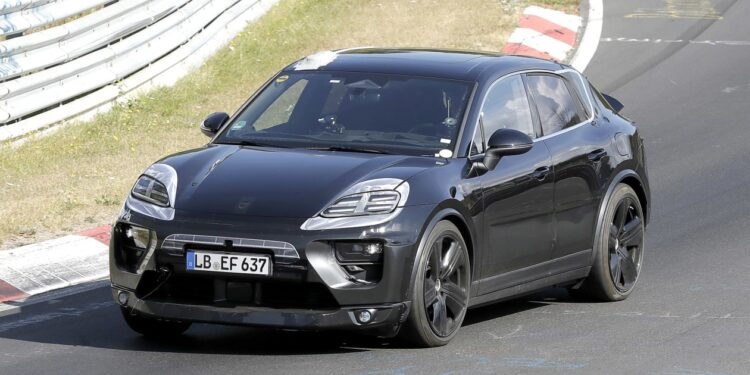Porsche is promising an even sharper focus on driving dynamics with the firm’s second bespoke electric vehicle, the forthcoming new generation of Macan, than with the smash-hit Taycan.
Senior engineers from the project have told Auto Express that the adoption of an all-new platform, the Volkswagen Group’s latest PPE set-up, will allow the Macan to feature not only trick 800V electrics but also significant chassis tweaks that will “make the Macan feel unmistakably like a Porsche”.
Among these gains will be one of the most advanced iterations yet of Porsche’s Active Suspension Management, with two-valve dampers used for the first time on any of the firm’s cars, electric or combustion-engined. “This allows us a greater spread of settings,” Dominik Hartmann, the car’s chief chassis engineer told us. “You’ll feel a bigger difference between all of the PASM modes.”
Both steel springs and air suspension will be available, with a double-wishbone layout at the front and a multi-link set-up at the rear. The car will be able to vector its torque from front to rear – in fact, it will run in rear-drive mode most of the time, with the front motor disconnected, as in the latest Taycans – and an electronic rear differential will allow lateral torque flow at this end of the vehicle, improving agility. There’s rear steering too, with up to five degrees of angle to aid manoeuvrability and stability, and a revised front/rear weight distribution of 48/52 has persuaded Porsche to increase the difference in width between the front and rear tyres. Up to 22-inch wheel sizes will be offered.
The Macan will feature a prismatic cell-based battery of around 100kWh in capacity, and be capable of faster charging speeds than the Taycan’s 270kW, with enough shove to recharge from five to 80 per cent of capacity in just 25 minutes. The total system power from both motors is more than 600bhp, with over 1,000Nm of torque.
The battery set-up will also feature a trick inverter designed to slightly increase the charging rate when connected to slower 400V chargers. The system – not dissimilar to the tech featured in some smartphones – will, in effect, split the 12 battery modules into a pair of 400V packs when it realises it has been connected to a charger running at that rate. It will level up the charge between the ‘two halves’, then feed both simultaneously for a small reduction in the overall charging time.
The new model – the first of Porsche’s nameplates to move across from combustion-engined power to all-electric propulsion – will make use of the PPE platform to get a longer wheelbase within similar dimensions to the current car’s. This should boost cabin space in the rear. Hartmann told us, “I’m over six-foot four-inches and I’m very comfortable in the rear cabin. We’re confident we have made gains in the packaging there.”
Macans have been spied testing for over a year now and Porsche has even issued official ‘teaser’ images of its prototypes. There’s no official word yet on a debut date but expect to see the car by the middle of 2023, and the first deliveries to customers in the first quarter of 2024.
Now read our list of the best electric SUVs…


